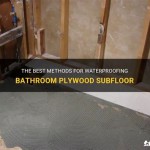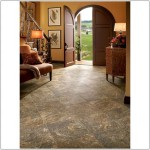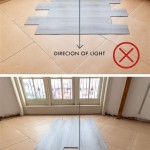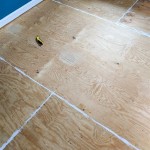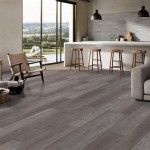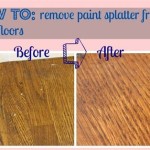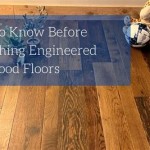What Is The Best Waterproof Scratch Resistant Flooring For Kitchen?
The kitchen is a high-traffic area, exposed to spills, stains, and wear and tear from everyday use. Therefore, choosing the right flooring is critical for both functionality and aesthetics. Waterproof and scratch-resistant flooring options have gained immense popularity in recent years, offering durability and ease of maintenance. This article explores the best waterproof scratch-resistant flooring options for kitchens, providing an in-depth analysis of their properties, pros, and cons.
Luxury Vinyl Plank (LVP)
LVP, also known as Luxury Vinyl Tile (LVT), has emerged as a top contender for kitchen flooring due to its exceptional durability and versatility. LVP consists of multiple layers, including a wear layer that provides scratch and stain resistance, a core layer for stability, and a decorative layer that mimics the look of natural materials like wood, stone, or tile. The waterproof core makes LVP ideal for kitchens prone to spills and moisture.
Pros of LVP:
- Water Resistance: LVP is completely waterproof, making it suitable for kitchens, bathrooms, and other moisture-prone areas.
- Scratch Resistance: The wear layer provides excellent scratch resistance, ensuring longevity and maintaining the floor's appearance.
- Easy Maintenance: LVP is easy to clean and maintain, requiring only sweeping, mopping, and occasional spot cleaning.
- Versatility: LVP offers a wide range of styles, colors, and textures, replicating the look of various materials, including wood, stone, and tile.
- Cost-Effective: Compared to natural materials like hardwood or tile, LVP is generally more affordable.
Cons of LVP:
- Potential for scratches: While LVP is scratch-resistant, it's not entirely scratch-proof. Sharp objects, like knives, can still leave marks.
- Limited Lifespan: LVP has a shorter lifespan than hardwood or tile, although reputable brands offer warranties.
- Not as Eco-Friendly: LVP contains synthetic materials, which may not be as eco-friendly as natural options.
Porcelain Tile
Porcelain tile has been a mainstay for kitchen flooring for decades, known for its durability, water resistance, and aesthetic appeal. Made from refined clay and fired at high temperatures, porcelain tile is extremely dense and impervious to water. It also offers excellent scratch and stain resistance, making it suitable for high-traffic areas.
Pros of Porcelain Tile:
- High Durability: Porcelain tile is known for its exceptional durability, resisting scratches, dents, and wear and tear.
- Water Resistance: Being impervious to water, porcelain tile is ideal for kitchens and bathrooms.
- Easy Maintenance: Porcelain tile is easy to clean, requiring only sweeping, mopping, and occasional spot cleaning.
- Wide Range of Styles: Porcelain tile offers a wide range of styles, colors, and finishes, from classic to modern.
- High Lifespan: Porcelain tile has a very long lifespan, lasting for decades with proper care.
Cons of Porcelain Tile:
- Cold Underfoot: Porcelain tile can be cold to the touch, requiring rugs or area mats for comfort.
- Hard Surface: Porcelain tile is a hard surface, which can be uncomfortable to stand on for prolonged periods.
- Installation Cost: Installation of porcelain tile can be expensive, requiring professional labor and a longer timeframe.
- Potential for Cracks: Porcelain tile is susceptible to cracking under heavy impact.
Engineered Hardwood
Engineered hardwood is a composite flooring option that combines the beauty of real wood with the durability and stability of plywood. It features a top layer of real wood veneer, adhered to a plywood core, providing dimensional stability and resistance to warping and shrinking. While not technically waterproof, engineered hardwood is moisture-resistant, making it a suitable option for kitchens with moderate moisture exposure.
Pros of Engineered Hardwood:
- Natural Beauty: Engineered hardwood offers the warm and natural beauty of real wood.
- Moisture Resistance: Engineered hardwood is more moisture-resistant than solid hardwood, making it suitable for kitchens.
- Durable: Engineered hardwood is durable and scratch-resistant, offering good longevity.
- Wide Range of Styles: It offers a variety of wood species, colors, and finishes to suit various design preferences.
Cons of Engineered Hardwood:
- Not Fully Waterproof: Engineered hardwood is not waterproof and should be avoided in areas prone to standing water.
- Costly: Engineered hardwood can be more expensive than LVP or tile.
- Susceptible to Scratches: Engineered hardwood is prone to scratches, especially from sharp objects.
- Requires Proper Maintenance: Engineered hardwood requires regular cleaning and sealing to maintain its appearance and longevity.
The best waterproof scratch-resistant flooring for kitchens depends on factors like budget, design preferences, and lifestyle. LVP offers a balance of durability, water resistance, and affordability. Porcelain tile provides exceptional durability and aesthetic appeal, while engineered hardwood offers the natural beauty of real wood with enhanced moisture resistance. Consider the pros and cons of each option to make an informed decision that meets your specific needs.
Best Waterproof My Dad S Flooring America

6 Ideas For Waterproof Kitchen Flooring Lx Hausys

Best Waterproof My Dad S Flooring America

The Top 5 Scratch Resistant Flooring Options
Top 6 Exclusive Water Resistant And Waterproof Floors

Best Scratch Resistant Flooring Kuhn Gallery

Revamp Your Home With Waterproof And Scratchproof Flooring

Top Waterproof Flooring Options Floor City
What Is The Best Flooring For A Kitchen Tarkett

What Is The Best Flooring For A Kitchen In 2024 Lx Hausys
See Also
